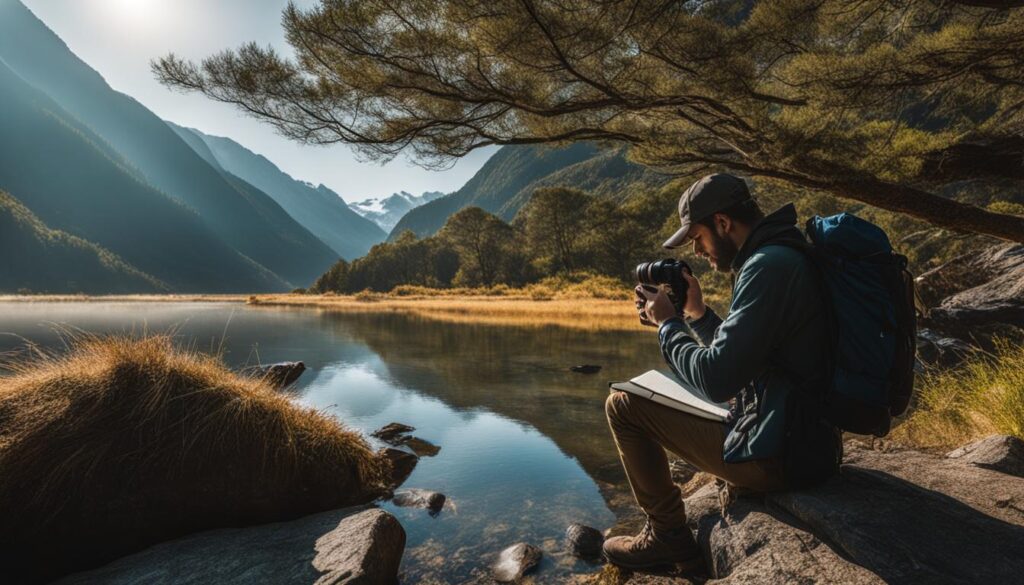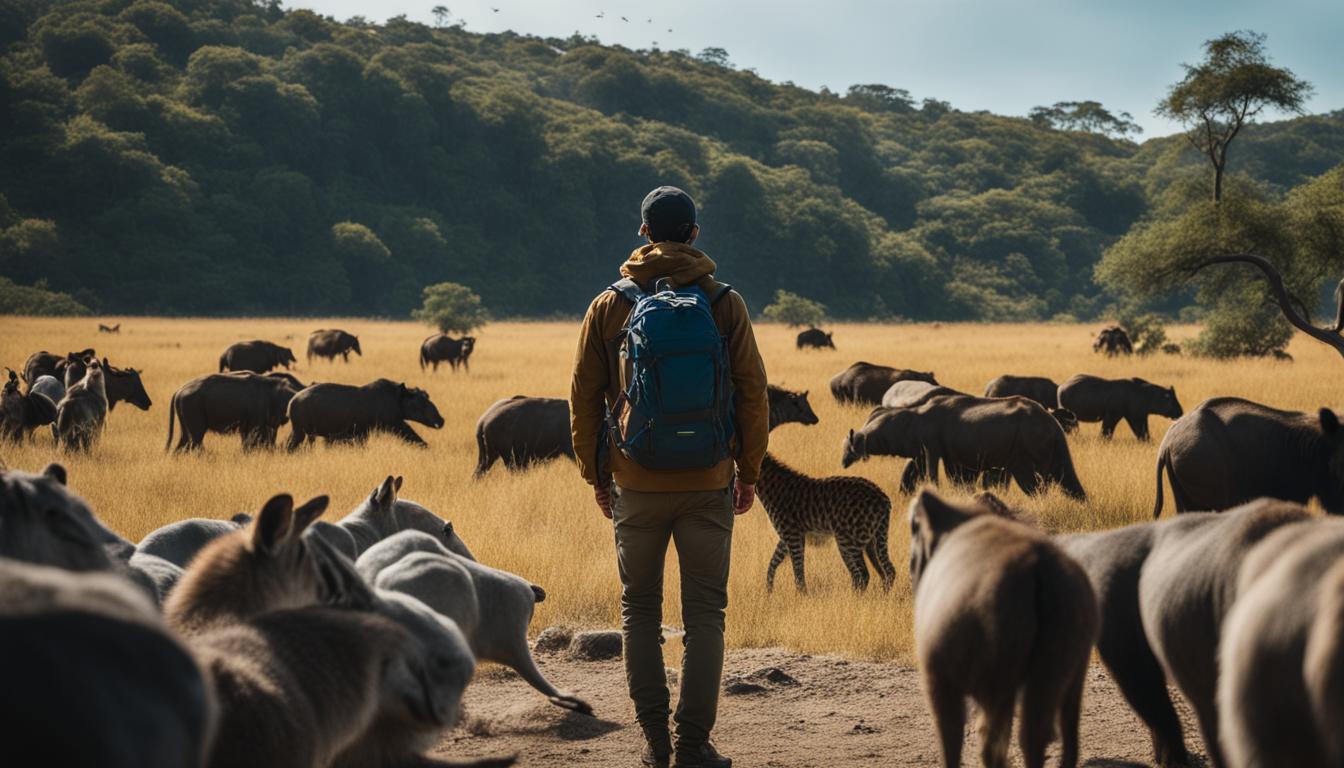When it comes to wildlife conservation efforts, there is a group of individuals who are making a significant impact – backpackers. These adventurous souls who embark on backpacking trips are not only seeking breathtaking landscapes and thrilling adventures, but they are also actively involved in protecting and preserving the wildlife that inhabits these areas.
Take, for example, Yellowstone National Park, one of the most beloved and iconic parks in the United States. While millions of visitors flock to its main attractions, only a small percentage of them venture into the backcountry. However, it is precisely in this vast expanse of wilderness, covering 95% of the park, where backpackers find solace, tranquility, and the opportunity to observe wildlife up close.
Backpackers play a crucial role in the preservation of Yellowstone and other national parks. By registering for overnight trips and paying fees, they provide essential financial support for park management activities, such as trail maintenance and wildlife protection initiatives. Moreover, their respect for the environment and love for wildlife create a culture of sustainable backpacking, ensuring the continued conservation of these natural habitats for future generations.
Key Takeaways:
- Backpackers contribute financially to wildlife conservation through park fees.
- They engage in trail maintenance, ensuring a well-preserved environment for wildlife.
- By valuing solitude and tranquility, backpackers promote sustainable backpacking practices.
- Their appreciation for wildlife observation fosters a culture of wildlife protection.
- Backpackers play a vital role in preserving natural habitats for future generations.
The Impact of Backpackers on Wildlife Conservation

Backpackers have a direct impact on wildlife conservation. Research shows that backpackers in Yellowstone National Park prioritize solitude and tranquility, and they assign a high importance to wildlife observation. They actively avoid crowded areas and are motivated by the opportunity to explore new territories and escape everyday routines. This focus on preserving the natural environment and experiencing the beauty of wildlife contributes to the overall protection and conservation of wildlife.
Backpackers also engage in conservation initiatives, supporting the management activities in the park through their fees and volunteer efforts. Their active involvement and promotion of wildlife conservation help create a culture of sustainable backpacking and conservation. By participating in trail maintenance and other management activities, backpackers contribute to the preservation of the park’s delicate ecosystem.
“Backpackers play a crucial role in wildlife conservation efforts. Their engagement in protecting wildlife is essential for the preservation of biodiversity and the long-term sustainability of the ecosystem.” – Conservation expert
By actively engaging in protecting and preserving natural habitats, backpackers positively impact wildlife conservation efforts. Their preference for backcountry experiences and their appreciation for wildlife observation contribute to sustainable backpacking practices and conservation efforts. With their involvement and contributions, backpackers help support the management activities in national parks like Yellowstone, ensuring the continued preservation of wildlife and the natural beauty of these protected areas.
Backpacker Conservation Initiatives
To further promote wildlife conservation, backpackers participate in various initiatives aimed at protecting and preserving wildlife. These initiatives range from educational programs to community involvement in conservation projects. Backpackers often collaborate with local authorities and conservation organizations to develop sustainable practices, raise awareness, and engage in research activities.
These backpacker-led conservation initiatives not only benefit the immediate environment but also contribute to the broader efforts of preserving wildlife and ecosystems on a global scale. Through their active engagement and promotion of wildlife conservation, backpackers play a significant role in ensuring the long-term survival of various species and their habitats.
| Backpacker Impact on Wildlife Conservation | Contribution to trail maintenance | Supporting management activities | Participating in wildlife research |
|---|---|---|---|
| Backpacker Engagement in Protecting Wildlife | Volunteering for conservation projects | Promoting sustainable backpacking practices | Participating in educational programs |
Through these actions and initiatives, backpackers emerge as active agents in the conservation of wildlife, supporting the preservation of biodiversity and fostering a deeper appreciation for the natural world. Their involvement not only benefits the ecosystems they explore but also inspires others to take part in similar conservation efforts, creating a ripple effect of positive impact.
Conclusion
Backpacking for conservation is not just a hobby, it’s a powerful way to protect and preserve wildlife. As backpackers, our engagement in protecting wildlife is crucial to the sustainability of our natural habitats. By venturing into the backcountry, we not only seek solitude and tranquility, but also actively contribute to the preservation of our precious wildlife.
Our love for backpacking and the opportunity to observe wildlife in its natural habitat drives us to prioritize the protection of these ecosystems. We actively avoid crowded areas and instead venture into unexplored territories, escaping the hustle and bustle of everyday life. Through our actions, we promote a culture of responsible backpacking and conservation, ensuring that future generations can also experience the beauty of these protected areas.
One of the ways we make a difference is through our contributions to park management activities. Whether it’s paying entrance fees or volunteering our time, we help support the efforts to maintain and safeguard these natural treasures, such as Yellowstone National Park. Our involvement ensures that wildlife is protected, and the natural beauty of these areas is preserved for years to come.
Together, as backpackers, we play a vital role in wildlife conservation. By actively engaging in protecting and preserving natural habitats, we create a positive impact on the overall well-being of our wildlife. Let’s continue to promote sustainable backpacking practices and inspire others to join us in protecting the wildlife that makes our outdoor adventures truly unforgettable.

